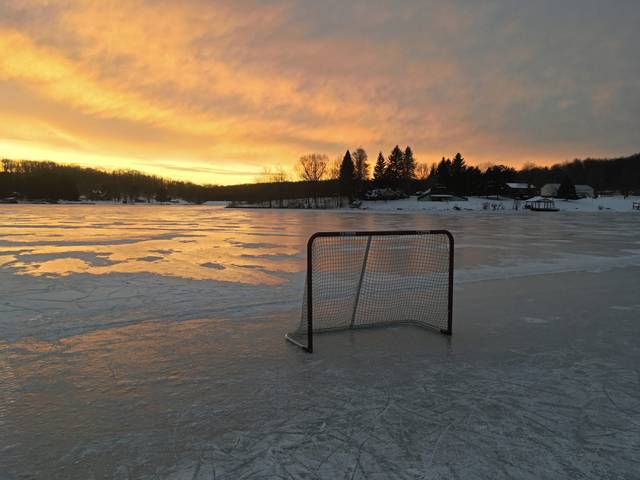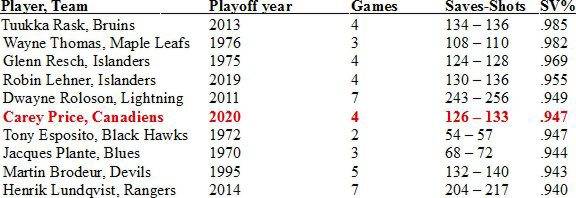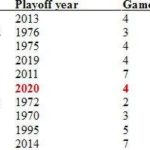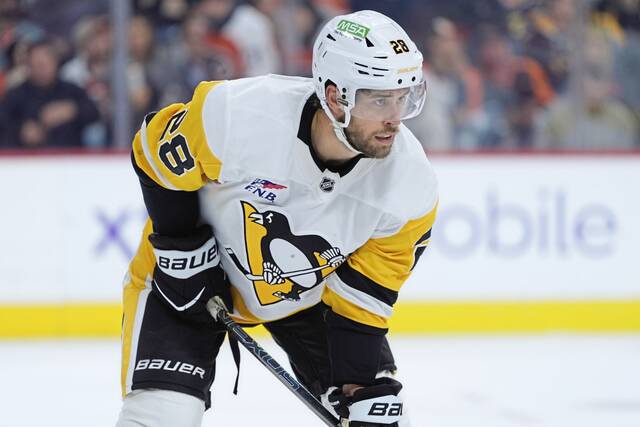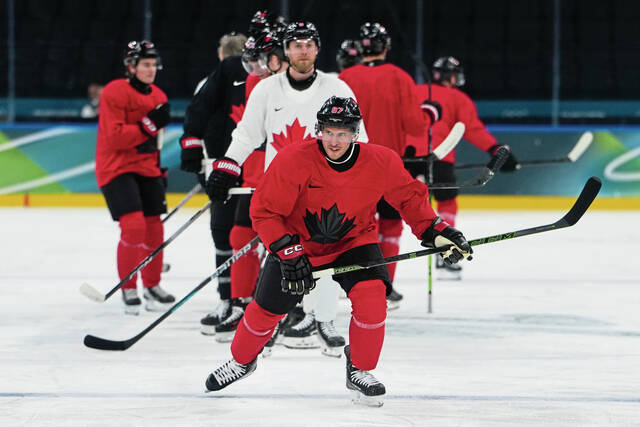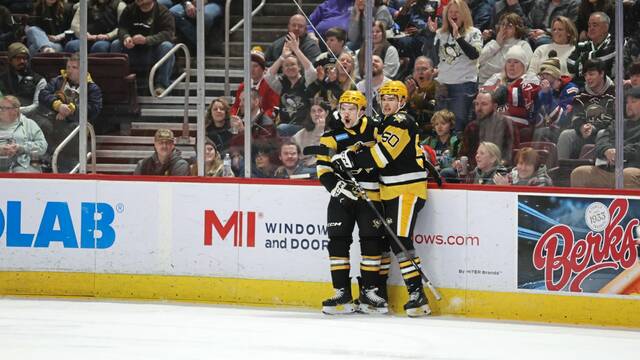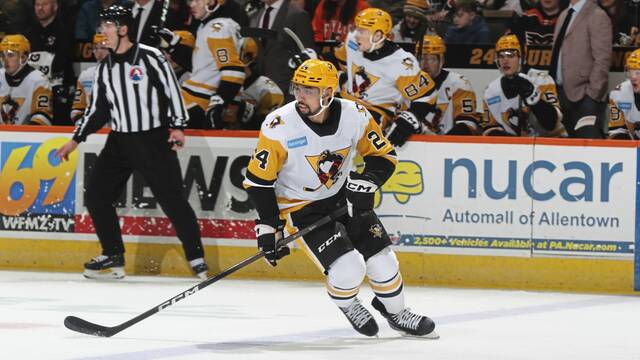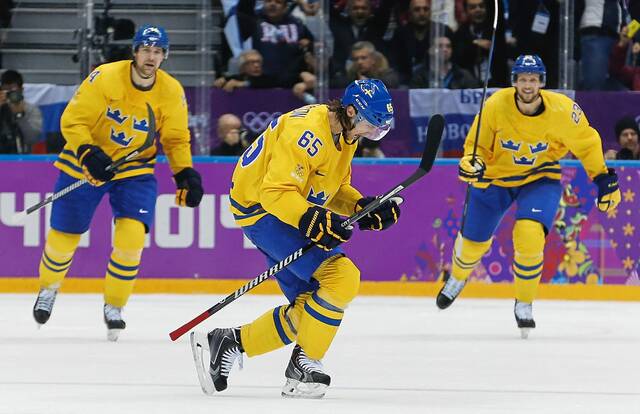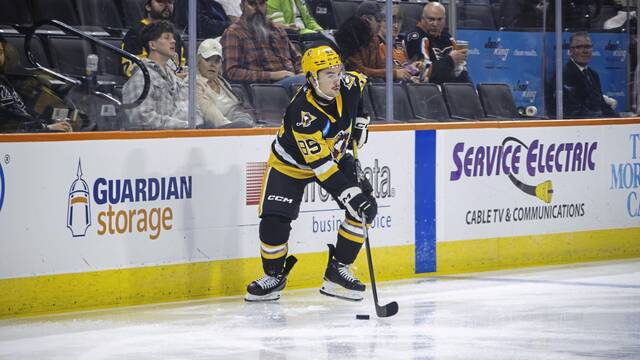Observations from the Penguins’ 2-0 loss to the Canadiens:
There will be plenty of time to dissect this franchise’s malfunctions over the past 28 months and how they’ve fallen from the league’s upper tier of true Stanley Cup contenders. In fact, there will be three months to do that before training camps open in mid-November (as planned).
For the moment, this space will be devoted to what went wrong in the immediate sense and why the deep and experienced Penguins fell so meekly to the limited and naive Montreal Canadiens.
In a sense, one team settled into its style of play quite easily while the other couldn’t locate its game with a map.
The Canadiens wanted nothing to do with a wide open series. And why would they given their minimal skill? Additionally, with a mostly choppy ice surface due to the amount of games being played in Scotiabank Arena on a daily basis as well as the heat of August, the Canadiens were like pigs in slop. They were at home.
The Penguins? They looked like a speed skating relay team trying to zip around in sand. By Game 4, facing elimination, they tried to adopt a similar approach as the Canadiens, playing a very safe, conservative game and they just didn’t look at ease doing that while the Canadiens were very much in their comfort zone.
To paraphrase Bane in “The Dark Knight Rises,” the Penguins thought ugly hockey on bad ice could be their ally in Game 4. But they merely adopted that approach. The Canadiens were born in it, molded by it.
Penguins coach Mike Sullivan often likes to speak of his team having a “swagger” when his players are executing their methods perfectly.
Short of a few infrequent instances, the Penguins didn’t have swagger during much of this series. They stumbled while trying to find a new way to strut.
“I thought Game 1, we played really well,” Penguins forward Sidney Crosby said. “We came out hard and obviously, to play as well as we did and to get as many chances and to lose that one, that hurts. But that happens in the playoffs. You look at (Game 3), you get a 3-1 lead, we don’t get the next (goal), we let them back in and we give them hope. If we shut them down for the rest of that (second) period, we’re looking at probably a totally different situation. It doesn’t take much. It’s a short series and things kind of swung in their favor with them being able to come back in that game.
“Both teams played pretty tight. There were some chances on both sides and they got one late. But, I would say Game 1, we probably got to our game the best but you’ve got to get better as the series goes on.”
What happened
After two scoreless periods, the Canadiens struck late in the third period to win this game essentially at 15:49 of the third period. Following a defensive zone turnover by Penguins forward Brandon Tanev, Canadiens forward Paul Byron deked his way through a handful of Penguins defenders in the offensive zone and went deep to the right of the cage. Drawing goaltender Tristan Jarry out of position, Byron backhanded a pass to above the crease where forward Artturi Lehkonen floated out of the attention of Penguins defensemen Kris Letang and Justin Schultz then swatted in a forehand shot for his first goal of the postseason. Byron had the lone assist.
At 19:28 of the third, defenseman Shea Weber airmailed an empty net goal to secure victory. There were no assists.
Statistically speaking
• Shots were even, 22-22.
• Penguins forward Evgeni Malkin led the game with four shots.
• Forward Jonathan Drouin and Lehkonen each led the Canadiens with three shots.
• Letang led the game with 26:09 of ice time on 34 shifts.
• Defenseman Jeff Petry led the Canadiens with 24:42 of ice time on 29 shifts.
• Faceoffs were even, 26-26 (50%).
• Crosby was 13 for 22 (59%).
• Canadiens forward Philip Danault was 9 for 14 (64%).
• Penguins defenseman Jack Johnson, Letang, Danault and Canadiens defenseman Ben Chiarot each led the game with three blocked shots.
Randomly speaking
• Jarry got the start in place of Matt Murray. In his first career playoff game, Jarry might have been his team’s best player. Not that the Canadiens bombarded him with a high volume of shots but he was tested with quite a few high danger chances. Even just 30 seconds in, he had to stop Canadiens forward Tomas Tatar in tight. His finest moment might have been a breakaway glove save on Canadiens forward Brendan Gallagher 3:29 into the third period.
• This is nothing new but the Penguins’ power play was just a mess, particularly their first chance. They could barely get the puck into the offensive zone. Overall, the power play was just a disjointed endeavor over these four games.
• The Penguins shuffled their lines quite a bit for this game. Most notably, Jared McCann returned to the lineup and centered the “third” line with Patrick Marleau and Conor Sheary. Aside from a few solid shifts in the third period, there was little notable about this line.
• The right wings on the top three lines got mixed around. Bryan Rust was bumped to the top line with Crosby while forward Patric Hornqvist skated with Malkin to start the contest. By the start of the third period, Sheary was back with Crosby. There was little, if any, evidence those changes had any positive effect.
• McCann had minimal impact upon his return. He logged 10:34 of ice time on 15 shifts, recorded one shot and was 3 for 7 on faceoffs.
• This was a really quiet series for Malkin. Yes, he led the team with 21 shots but it would be a stretch to say he looked dangerous with many of his offensive chances. He finished the series with one assist and no goals.
• Crosby was a little less inert. He did have some big goals in Games 1 and 2. But he was also below the considerable standards expected of him. It’s not 100% certain he was completely healed from whatever ailment sidelined him for much of training camp but he never seemed to find his top gear consistently this series.
• It wasn’t quite as troublesome in Game 4 as it had been earlier in the series, but the third defensive duo of Johnson and Schultz had a rough four games overall. After being on the ice for the first and winning goals in Game 1, they were defending on the Canadiens’ first three goals in Game 3.
They played a combined 43:27 of common five-on-five ice time in the series according to Natural Stat Trick. In contrast, the Canadiens’ very limited third duo of Victor Mete and Xavier Ouellet logged 38:57 of ice time.
The Canadiens seemed to realize the risks of playing Mete and Ouellet too much and largely sheltered them. Meanwhile, the Penguins were willing to let Johnson and Schultz play through their deficiencies.
• If this is it for Schultz in Pittsburgh, what a rotten way to complete his otherwise strong tenure with the Penguins.
• This might be it for Patrick Marleau as an NHLer. If so, what an unremarkable finale to a marvelous career.
Every player was impacted negatively by the league’s hiatus as far as conditioning goes. But it’s might have impacted his 40-year-body more than others. In discussions with other older players over the years such as Jaromir Jagr or Matt Cullen, a common theme from them with regards to long layoffs for something like an injury, a work stoppage or even an offseason is that it takes so much longer to regain proper conditioning. It’s hard to imagine a four-month break, much of which was spent off the ice because of quarantine restrictions, was ideal for Marleau.
• After calling seemingly any stray stick which ventured into the zip code of an opponent’s hands in the first four games, the officials really let a lot go in this game. There were only four penalties total in this contest.
• When the Canadiens traded away popular defenseman P.K. Subban to the Nashville Predators in the 2017 offseason and got back an older player in Weber in return, critics in Montreal were livid and saw the Canadiens getting fleece. Unfairly or not, Weber became something of a public enemy simply for being traded. After this performance in this series, particularly the last two games, he might be a civic treasure.
• Between Weber (6-foot-4, 230 pounds) and his partner Ben Chiarot (6-3, 225), the Penguins had not been impeded by a tough physical defensive duo since they ran into the Boston Bruins and their top pair of Zdeno Chara (6-9, 250) and Dennis Seidenberg (6-0, 199) in the 2013 Eastern Conference final. For the past several seasons, the Penguins have devoured defenseman with those dimensions.
• Speaking of those Bruins, allow this series to serve a reminder that Montreal’s Claude Julien is a really good coach. He had two months to dissect a superior Penguins team and figured out a way to shut down the likes of Crosby and Malkin. Again. It’s hard to come up with an argument that the Canadiens didn’t have the better coaching in this series.
• Montreal’s Carey Price was as advertised. He was a rock in net for his team this series and rarely seemed beleaguered by the Penguins’ offense. Granted, the Penguins didn’t bombard him the way they probably are capable of, but he just seemed like he was in total control of this from the start of Game 1.
• Canadiens rookie forward Alex Belzile made his NHL debut at the age of 28 in this contest. Primarily playing on the fourth line, he logged 8:22 of ice time on 14 shifts, one shot attempt and one blocked shot. He played 407 games in the minor leagues (239 in the AHL and 168 in the ECHL) before playing his first NHL game and doing it in a high-pressure scenario. What a remarkable story.
168 games in the ECHL. 239 AHL games. Turning 29 in 3 weeks. Alex Belzile just played his first NHL game for his childhood team. One of the best guys and hardest working guys I’ve had the pleasure of playing with. Congrats brother! Love ya. @Belz_63 #nevergiveup pic.twitter.com/aWpIhvHnk1
— Max Domi (@maxdomi) August 8, 2020
• No matter what team he’s on, whether it’s the Canadiens, Buffalo Sabres or Calgary Flames, Bryon always seems to give the Penguins fits. He had four points (one goal, three assists) this series.
• What’s even more disappointing with this result from the Penguins’ perspective is that the Canadiens’ top offensive forwards really didn’t contribute much this series. Their leading scorer during the regular season, Tatar, had no points this series. Gallagher, one of the NHL’s best net-front presences, had one assist.
• So much of this comes off as random. Not necessarily the Penguins’ result specifically, but this tournament. Every NHL team involved has been asked to go from hibernation to warp speed in a short, finite period of time. And to do it in two neutral sites during the heat of August.
The NHL’s other 5-12 series between the Edmonton Oilers and Chicago Blackhawks had a similar result with the Blackhawks pulling off a wild upset.
The Penguins should be good enough to beat the Canadiens under any circumstances. There’s no excuse for them being humiliated like this. At the same time, there might not be many viable reasons this happened as it did.
Historically speaking
• He wasn’t quite Bruins goaltender Tuukka Rask in 2013 or even New York Islanders goaltender Robin Lehner 16 months ago, but Price had one of the best save percentages in a postseason series ever against the Penguins:
• Speaking of Rask, he had the last postseason shutout of the Penguins in Game 4 of the 2013 Eastern Conference final. He made 26 saves in a 1-0 home victory.
• The Canadiens remain undefeated in postseason series against the Penguins. They previously defeated the Penguins in a 1998 Eastern Conference quarterfinal series (4-2) and a 2010 Eastern Conference quarterfinal series (4-3)
• The Penguins have never won a best-of-five series. Their previous defeats came in preliminary round series during the early 1980s. They lost to the Bruins, 3-2, in 1980, the St. Louis Blues, 3-2, in 1981 and the Islanders, 3-2, in 1982.
Publicly speaking
• Crosby was asked how the Penguins get back to the place where they were as Stanley Cup champions and his answer kind of veered off to the unique circumstances of this tournament:
“That’s a tough question. Listen, it’s a (best-of-five series) and anything can happen. We did some good things. Did we do enough? No. Give them credit. They played really well and got some big plays throughout the four games. It’s a pretty broad question with the injuries that we had throughout the year and this was the situation that we were faced with. We would have loved a better outcome. It’s hard to really tie it all in. It’s basically like starting off fresh. It’s hard to really draw off the whole season as a whole when there’s a four-month break and you start all over again. The year as whole, we did a whole lot of things leading up to this. But this is a whole separate thing and we didn’t play well enough to win.”
• Letang still has faith in this core group, even as it approaches its mid-30s:
“We still believe in the core group of this team. We have a lot in the tank. We’re going to keep playing hard and give everything for the Penguins. We have to be better. This year, we didn’t play good enough to win but we felt comfortable with the guys that we had.”
• Sullivan thinks there’s still something left in this group. His reaction when asked if he felt the window was closing on their ability to be a true contender:
“I don’t believe that. These guys are still elite players. I believe in this core. They’re such character guys. They’re elite hockey players and I still think there’s elite play left in them. So, that’s just what I believe. Obviously, at some point, everybody’s window closes. So you could argue that with any team in the league. But I strongly believe this group has a lot of elite hockey.”
• Crosby wasn’t ready to answer big picture questions about the team when asked about the core moving toward its mid-30s:
“With age, that’s a possibility. But I think this year, I can only speak personally, obviously, I would have liked to stay a little bit healthier and play a full season. It’s been a tough year and a half not playing a lot of hockey with a long (2019) offseason, then only playing 20 games (before a core muscle injury) and coming back for a short period then having this (hiatus due to the coronavirus). It would be nice to get into a rhythm and obviously, it would have been great to play meaningful games now. But it’s a really hard one to evaluate. That’s the honest truth as far as trying to break this all down. It’s a tough one to break down overall.”
• Sullivan wasn’t ready either to look at the big picture:
“I haven’t even given it much thought at this point. We just lost the series. It’s disappointing, it’s emotional. We care, we all care. It’s emotional. I’m not trying to dodge (the) question. I just don’t know if I’m prepared to answer it with a valid answer. I’m sure we’ll all have to go back and look at the experience and try to evaluate it and assess it and see where we’ll go.”
• Letang didn’t really want to tie what happened in the regular season to the postseason due to the long hiatus:
“We had good moments but you’re talking about like seven months ago, eight months ago. I don’t think you can associate what just happened to the regular season. The break that we just witnessed was longer than an offseason. I thought guys prepared themselves well but when the puck dropped, I think we faced a well-balanced team with a great goaltender that played better than us. You have to evaluate the season and the playoffs (as) two different things.”
• Sullivan echoed Crosby’s sentiment that the team played well early in the series but failed to improve:
“I thought the first two games, we played extremely well. The first game might have been our best. We didn’t get the power play going in Game 1 but every other aspect of our game was pretty good. We needed our best tonight and we didn’t get it.”
• Sullivan dismissed any notion that playing Price set the Penguins up for failure:
“I don’t think it’s a trap. I said before the series started that we had a lot of respect for Montreal and how good they are. And I meant that sincerely. These guys are all good players, they’re NHL players. They’ve got a lot of young talent on the team that’s starting to take a next step. They’ve got great leadership with some of their defensemen and they have an elite goaltender. We knew this was going to be a hard series. I don’t think any of us had any thought otherwise. We knew it was going to be a hard series. We knew we were going to have to play well in order to win.”
• Weber spoke about the naive nature of his younger teammates:
“It’s fun to watch. Everybody talked before the series about how much more experience (the Penguins) had than us. I almost thought it was kind of a good thing. Maybe these young guys didn’t even realize how big a deal it was and they stepped up. Guys played really well, and against two of the top centers in the league. To say the least, guys did a great job. There’s a lot of work left to do but I think those guys took huge steps, even the pause for the (four) months.”
• Weber on Price’s presence:
“Just having him back there, he’s the backbone for us. He’s so solid every night. That allows us to play with confidence, not be worried about giving up chances. Obviously, we want to maintain the structure that we’ve had. We were a lot tighter than we have been in the past and kept a lot of stuff to the outside. So I think knowing having him back there and the way he plays the pucks on (dump-in attempts) and the rebound control he had in the series helped, not only the (defensemen) but everybody.”
Visually speaking
• Game summary.
• Highlights:


